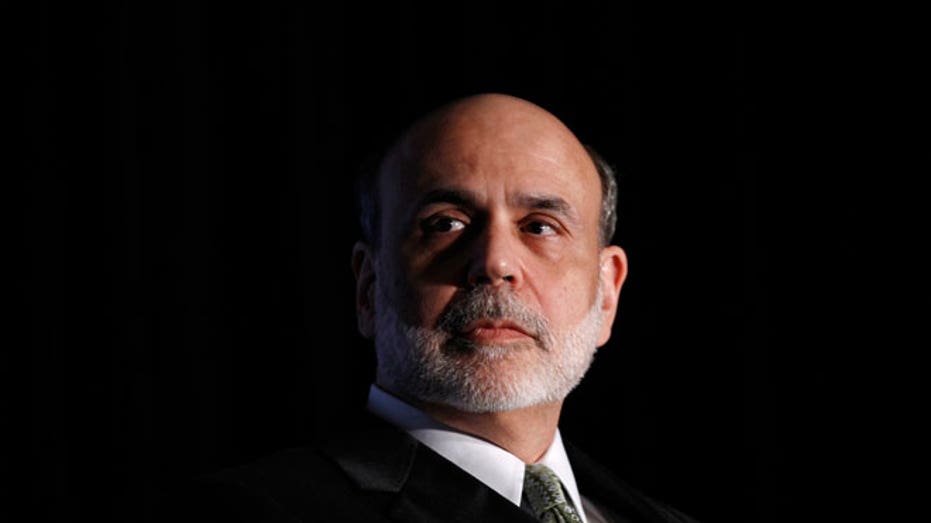Deutsche Bank's Six '13 Rally Busters
To say the bulls are in control on Wall Street this year is an understatement. The Dow has surged 2,300 points -- or nearly 18% -- so far in what has been a nearly unstoppable rally. Deutsche Bank said Wednesday it sees more gains for the markets, but warned that any of these six factors could knock the rally off track.
1. Monetary Policy Shock

The Federal Reserve has embarked on a massive bond-buying operation -- dubbed QE3 -- in which it is scooping up $85 billion in assets a month. Many economists credit the unconventional program with helping boost the economy and keep long-term interest rates low.
Here's the problem: At some point, the central bank is going to have to start trimming back on its purchases, and eventually take its foot off the accelerator. Exactly when and how the Fed will accomplish this is up for question. If it botches the Houdini-like exit, it could send interest rates spiking, put pressure on the economy and create a mess for Wall Street.
2. The Eurozone Debt Crisis Flares Up

The eurozone debt crisis has been a thorn in Wall Street's side for years now. Even minute headlines from the 17-member currency bloc have roiled the markets and forced traders (and market reporters) to learn more details than they likely ever wanted to know about a litany of countries, including: Germany, France, Italy, Spain, Portugal, Greece, Cyprus and Slovenia.
A vow by European Central Bank President Mario Draghi to do whatever it takes to keep borrowing costs from exploding have eased tensions across the pond. However, new sub-crises seem to be lurking around just about every corner.
3. Surprise U.S. Growth Slowdown

The U.S. economy isn't exactly on a tear, but it's expected to grow at an accelerating pace. Deutsche Bank sees the world's biggest economy expanding 2.2% this year and then 3.2% in 2014. That's unless the government messes things up. Deutsche Bank warns that an unexpectedly strong impact from belt-tightening in Washington, D.C. could still overshadow the recent influx of strong data. Indeed, consumers are still dealing with a payroll tax hike that went into effect early this year, and many firms remain uncertain about the effects of the sequester.
4. China Hits a Rough Patch

China's economy has seen astounding growth in the last several years -- especially as other big world economies have suffered from events like the financial crisis and the eurozone debt debacle.
But worries have swirled about a so-called hard landing for the world's No. 2 economy, where growth would cool down drastically as the economy matures and certain trading partners continue struggling.
Then there's the matter of debt. A credit boom helped finance big infrastructure improvements and the build-up of domestic businesses. But if those loans don't perform -- it could spell trouble.
5. Currency War Strikes

A (sometimes welcome) side effect of super aggressive central-bank easing is depreciating exchange rates. For example, recent moves by the Bank of Japan have put enormous pressure on the Japanese yen versus the U.S. dollar. Cheaper exchange rates make your exports more competitive -- but they also run the risk of annoying your trading partners.
So far, some tight-rope diplomacy has managed to keep everything in check among the biggest players. However, Deutsche Bank warns that emerging market countries could employ measure like tariffs, capital controls and their own rate cuts to strike back against heavyweights in the developed market. That could make a nasty situation for world trade.
6. Geopolitical Pressure Heats Up

If all else fails, geopolitical turmoil can always shake things up.
Deutsche Bank cites the North Korea nuclear threat and an escalation in the war in Syria as potential flashpoints. And don't forget Iran's nuclear ambitions, either.
Any of these situations, or an outlier, could send shockwaves through commodities and equities markets and eventually even hurt the broader global economy.



















